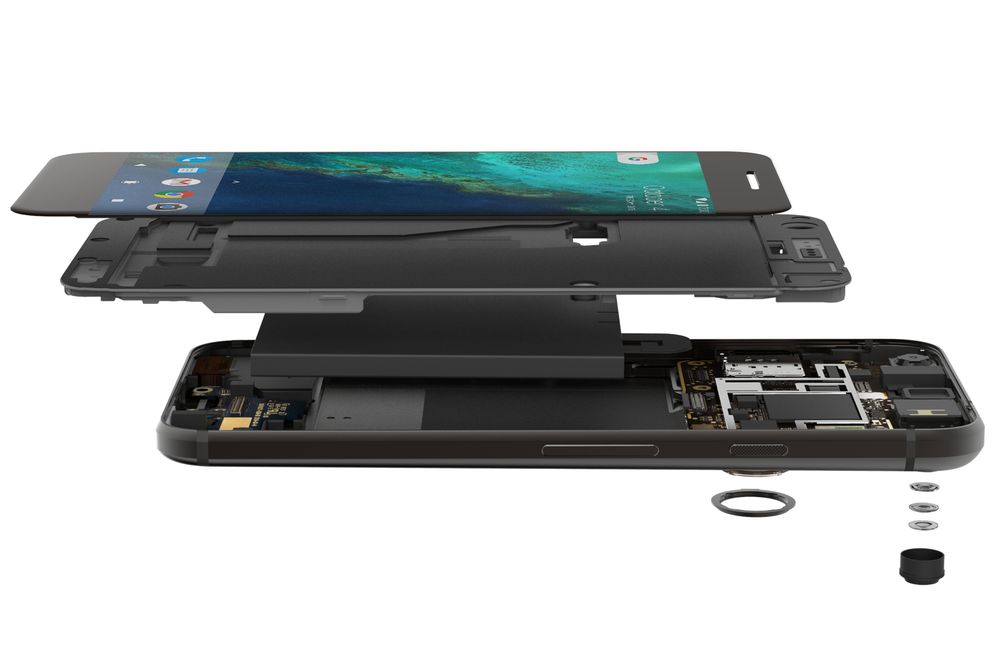The Google Pixel and Pixel XL phones announced earlier this month at Google’s latest hardware event aren’t quite out yet (they will be in stores and arrive on doorsteps on October 20th), but the first wave of review are out, and right now, the overall opinion is positive but with a few caveats
Review Highlights
While I’m not going to quote all the reviews, here are some highlights that I’ve read so far:
From the Android Police Pixel review:
The Pixel offers an incredible camera, fast software, premium materials, and high-end components. But it doesn’t revolutionize the market, and it doesn’t take any big risks. The Pixel, frankly, probably isn’t that exciting to most people with a relatively new high-end smartphone.
Although it’s not without downsides:
If you take the Google Pixel merely as the sum of its parts and put up the $769 Pixel XL against the $499 Nexus 6P, are you going to find nearly $300 of extra “value” there? I mean, no. You’re not…If all you care about are the raw numbers, the Pixel isn’t an amazing value proposition, and Nexus fans understandably take issue with this.
Additionally, many reviews have bemoaned the single, downward-firing speaker (the 6P has a great pair of loud, stereo, front-facing speakers), the lack of any waterproofing to speak of, and the somewhat uninspired design.
The Ars Technica review points out some eerie similarities between the Pixel and HTC’s current lineup (HTC is the manufacturer of the Pixel, while Google is the designer):
When you look at their feature list, you can’t shake the feeling that Pixel phones were cobbled together from an HTC parts bin. For instance, is there a design reason that the $500 Huawei Nexus 6P had stereo speakers and the $750 Pixel XL does not? Or is the reason that stereo speakers are not part of HTC’s current lineup and therefore were not among the parts Google had to choose from? Is there a design reason the Pixel doesn’t have waterproofing, when its direct competitors from Samsung and Apple do? Or is the reason that HTC didn’t have a pre-made waterproofing solution available, so the option was not made available to Google? Is there a design reason why the bottom bezel is so large? Or is the reason that HTC phones typically have a fingerprint sensor or hardware buttons down there, so the parts made available to Google accounted for this?
Overall, though, many of the reviews are positive, although just about all of them qualify their positive review with the caveat “for Google’s first OEM attempt”.
In addition to Android Police and Ars Technica, you can find additional reviews at Recode and at Wired.
Why Google’s Pixel =/= Apple’s iPhone
The biggest comparison made for flagship Android phones has always been with the iPhone. With the Pixel’s price matching the iPhone, and the derivative design, these comparisons are even more appropriate. While I don’t necessarily have a problem with the absolute price of the Pixel phone, I do see some big difference between what consumers get for a $700 iPhone vs a $700 Google Pixel.
The first – and most important to me – is the longevity of the phone’s software. Despite all Apple’s negative points, the iPhone has a great reputation at being updated. This WSJ article shows how long Apple iPhones and iPads get updated, and it puts all of Android (Nexus included) to shame. Google Pixel phones are only guaranteed 2 years of software updates while Apple has supported phones for 4+ years. While the speed of those updated phones is certainly a concern, right now Android (from all OEMS) have a major problem with OEM support, and if Google’s top-of-the-line phone can only manage two years of current software, that makes the price tag a lot harder to accept.
Second, Apple has a pretty robust network (at least in the US) of in-person stores, should an under-warranty phone encounter a problem and need to be returned or repaired. Often times the customer can walk out with a new (or refurbished) iPhone in an hour or so. Contrast that with Google Pixel – which, while it does offer more support than many Nexus phones, still require returning a phone via mail and waiting at least a day or two for a replacement.
Finally, right now the Google Assistant is unique to the Pixel (except for its inclusion in Google’s newest messaging app, Allo). There is no (apparent) reason why Assistant is not available on Nexus or OEM hardware (or the iPhone, for that matter), and to me, this smacks of Apple-style “forced exclusivity”, even though Assistant isn’t a big upgrade from Google Now, that is currently available on multiple phones.
There is talk of Google designing their own silicon (a la Apple), which could make things very interesting in a year or two, however.


Leave a Reply
You must be logged in to post a comment.